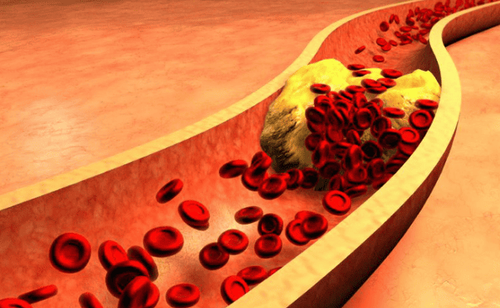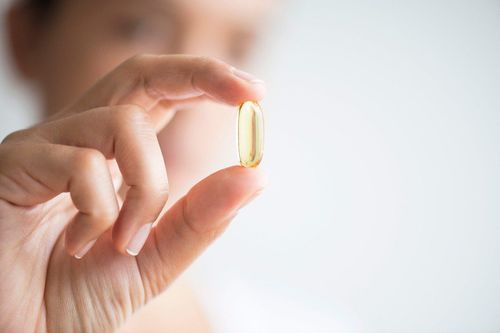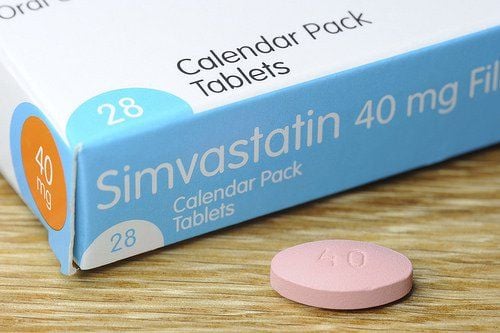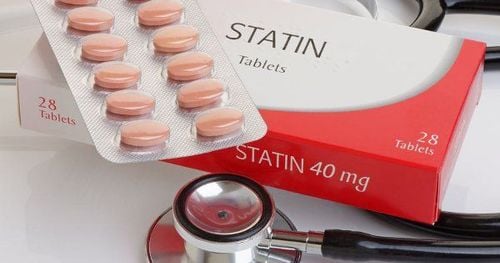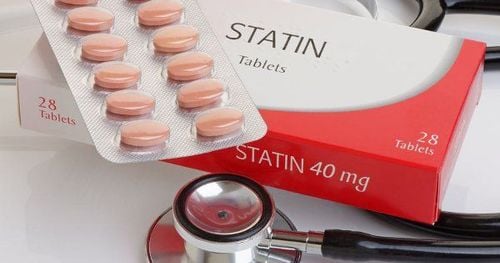This is an automatically translated article.
Cholesterol is one of the most misunderstood substances. Some people believe that cholesterol-rich foods such as eggs should be avoided because of concerns that they may increase the risk of heart disease. However, some recent studies show that the consumption of healthy foods that provide good HDL cholesterol is not harmful to human health.
1. What is cholesterol?
Cholesterol is a waxy substance commonly found in the human body and in animal products such as meat, eggs, and milk. It plays an extremely important role in the production of hormones, vitamin D and bile necessary for the digestion of fats. Besides, cholesterol is also an important component of every cell in the body, giving cell membranes strength and flexibility.Normally, the liver makes all the cholesterol the body needs to function, but cholesterol can also be introduced into the body through the consumption of animal products. Because cholesterol does not interact well with the blood, it is transported by lipoprotein particles, including low-density lipoprotein (LDL) and high-density lipoprotein (HDL). Among them, LDL is often referred to as bad cholesterol, which is related to the accumulation of plaque in the arteries; On the contrary, HDL is good cholesterol, which helps the body excrete excess cholesterol from the body.
When you consume more cholesterol, the body compensates by lowering cholesterol naturally. Conversely, when the amount of cholesterol provided by the diet is low, the body will increase cholesterol production to ensure adequate amounts of this important substance are always available.
In fact, only about 25% of cholesterol in the body comes from food sources, the rest is produced by the liver.
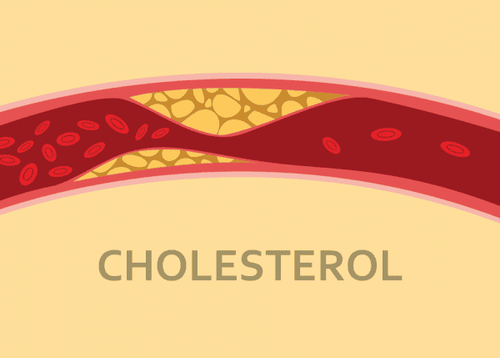
Cholesterol cũng có thể được đưa vào cơ thể thông qua việc tiêu thụ các sản phẩm động vật
2. Is Dietary Cholesterol Harmful?
Several studies have shown that dietary cholesterol does not significantly affect cholesterol levels in the body. In fact, about two-thirds of the world's population experiences little or no sign of elevated cholesterol levels after eating cholesterol-rich foods, even in large amounts.
In contrast, a small number of people experience cholesterol uncompensation or overreaction and appear to be more susceptible to the effects of high cholesterol foods. However, these cases are thought to be capable of recycling more cholesterol back to the liver for excretion. In addition, cholesterol in the diet also partly affects the ratio of LDL and HDL in the body - an indicator that helps to warn of the risk of cardiovascular disease. Although nutritionists do not recommend that everyone avoid dietary sources of cholesterol, it should be noted that not all cholesterol-rich foods are healthy.
Here are 7 healthy cholesterol foods, and 4 foods that you need to limit or avoid.
2.1. 7 foods rich in good cholesterol
Eggs This is one of the extremely nutritious foods that you should choose. Because eggs contain high cholesterol, an average egg will provide about 211 mg of cholesterol, corresponding to 70% of the RDI (recommended intake).
Some people often tell each other to avoid eating a lot of eggs for fear that they can cause cholesterol levels to skyrocket. However, eggs do not actually have a negative effect on cholesterol levels, and eating an entire egg can help you increase your HDL (good) cholesterol levels to protect heart health.
In addition to providing a lot of good cholesterol, eggs are also a great source of protein with high absorbability and healthful nutrients such as B vitamins, selenium and vitamin A. Nutritionists have recognized that eating 1-3 eggs a day is completely safe for healthy people.
Cheese In 28 grams of cheese can provide up to 27 mg of cholesterol, equivalent to 9% of the RDI. Although cheese is often linked to increased cholesterol levels in the body, some studies have shown that cheese high in fat does not negatively affect cholesterol levels.
In addition, cheeses also vary in nutrient content, but most cheeses provide a good amount of calcium, protein, B vitamins, and vitamin A. Because cheeses are high in calories, you should use them with the recommended serving size of 1-2 ounces at a time.
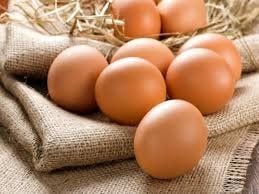
Trong trứng có chứa hàm lượng cholesterol cao
Shellfish Certain types of shellfish, including crabs, clams and shrimps are considered an excellent source of protein, B vitamins, iron and selenium. In addition, they are also high in cholesterol, usually in a serving of shrimp equivalent to 85 grams will provide about 166 mg of cholesterol, accounting for more than 50% of the RDI.
Furthermore, shellfish also contains several bioactive ingredients, such as the antioxidants carotene and the amino acid taurine, which help prevent heart disease and lower bad LDL cholesterol.
Beef Steak Usually packed with protein, as well as other important vitamins and minerals, including vitamin B12, zinc, selenium and iron. Additionally, it's lower in cholesterol than feedlot beef, while having more omega-3 fatty acids, which have powerful anti-inflammatory properties.
In 112 grams of pasture-raised steaks will provide about 62 mg of cholesterol, which corresponds to 20% of the RDI. Although processed meat has a strong relationship with heart disease, some studies have not found any link between red meat intake and the risk of cardiovascular disease.
Organ meats Organ meats are rich in cholesterol, such as heart, kidney and liver. Chicken hearts are one of the great sources of powerful antioxidants, as well as vitamin B12, iron and zinc.
Besides, it is also high in cholesterol, in 56 grams of organ meat will provide about 105 mg of cholesterol, equivalent to 36% of the RDI. In a study of more than 9,000 adults in South Korea, it was found that those who consumed moderate amounts of unprocessed meat, including organ meats, had a lower risk of heart disease than those who did not. people with the lowest consumption.
Sardines are a nutritious and convenient source of protein that can be easily prepared with a variety of dishes. In 92 grams of sardines will contain about 131 mg of cholesterol, corresponding to 44% of the RDI for vitamin D, 137% of the RDI for B12 and 35% of the RDI for calcium. Furthermore, sardines are also rich in minerals like iron, selenium, phosphorus, zinc, copper, magnesium and vitamin E. Plain yogurt is a yogurt that is full of fat, along with other healthy nutrients such as protein, calcium, phosphorus, B vitamins, magnesium, zinc and potassium.
One cup of plain yogurt (245 grams) provides about 31.9 mg of cholesterol, or 11% of the RDI. Researchers have shown that consuming whole fermented dairy products can reduce bad cholesterol and high blood pressure, thereby preventing the risk of stroke, heart disease and diabetes. In addition, fermented dairy products such as yogurt also provide many benefits for gut health by positively affecting the beneficial bacteria in the gut.
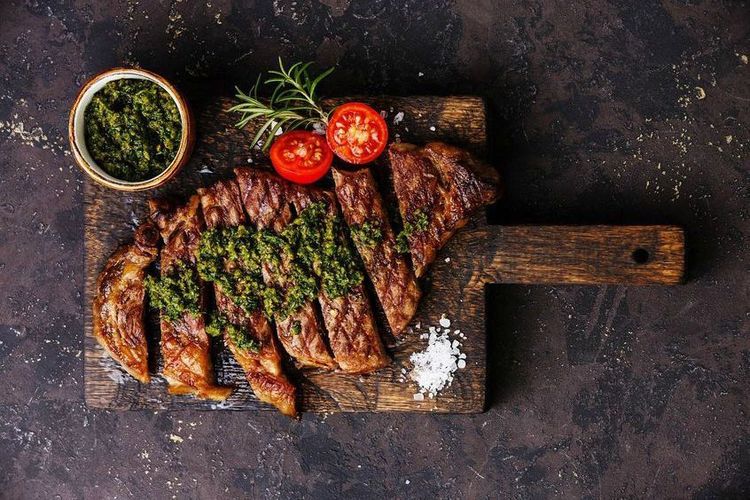
Bò bít tết có chứa hàm lượng cholesterol thấp hơn so với thịt bò được nuôi béo
2.2 4 cholesterol-rich foods to avoid
Fried foods Such as deep-fried meats and cheese sticks are both sources of high cholesterol, so you should avoid them often.
Most fried foods are high in calories, along with some trans fats that contribute to an increased risk of heart disease and negatively impact your overall health in a variety of ways. Moreover, consuming a lot of fried food also increases the risk of chronic diseases like diabetes and obesity.
Fast Food Regular fast food consumption is a leading risk factor for many chronic diseases, including heart disease, diabetes and obesity. People who tend to favor fast food often have higher cholesterol levels, more belly fat, higher levels of inflammation and impaired blood sugar regulation.
Thus, consuming less processed foods and eating at home more often will significantly help you prevent risk factors for heart disease, especially high levels of LDL cholesterol.
Processed meat Such as sausages, bacon are foods with high cholesterol, so their use should be limited. High consumption of processed meat is strongly linked to an increased incidence of heart disease and certain cancers such as colon cancer.
According to a review from nutritionists, when eating about 50 grams of processed meat per day can increase the risk of heart disease by up to 42%.

Tiêu thụ thức ăn nhanh thường xuyên là yếu tố nguy cơ hàng đầu dẫn đến nhiều căn bệnh mãn tính
Desserts Including cookies, cakes, ice cream and some other sweets are all unhealthy foods, containing a lot of cholesterol, sugar, unhealthy fats and calories.
Regularly enjoying these foods can negatively impact overall health and lead to rapid weight gain. In addition, they are also linked to a number of dangerous diseases such as heart disease, diabetes, cognitive decline and cancers.
Furthermore, these foods also do not provide many essential nutrients such as vitamins, minerals, protein and healthy fats that the body needs for optimal growth.
3. Ways to help lower bad cholesterol (LDL)
High levels of bad cholesterol (LDL) can lead to a buildup of cholesterol in the blood vessels, which in turn increases the risk of developing heart disease. Here are some ways that can help you reduce bad cholesterol levels and balance the ratio of LDL - HDL in the body:
Add more fiber: Consume more fiber, especially soluble fiber types. found in fruits, beans and oats can help effectively lower LDL cholesterol levels. Lose Weight: Maintaining a healthy weight is one of the best ways to lower bad cholesterol levels while promoting the production of good cholesterol. Give up unhealthy habits: People who regularly smoke cigarettes often have higher levels of bad cholesterol than other people, and are at higher risk of cancer, heart disease and emphysema. Therefore, giving up smoking is one of the effective ways to reduce bad cholesterol in the body. Omega-3 supplements in the diet: Foods rich in omega-3s like salmon, or omega-3 supplements like fish oil have been shown to effectively lower LDL levels and increase HDL levels. Eat more fruits and vegetables: Consuming a lot of fruits and vegetables regularly will help lower bad cholesterol levels, thereby making you less likely to have cardiovascular disease than other people. Vinmec International General Hospital with a system of modern facilities, medical equipment and a team of experts and doctors with many years of experience in medical examination and treatment, patients can rest assured to visit. and hospital treatment.
Please dial HOTLINE for more information or register for an appointment HERE. Download MyVinmec app to make appointments faster and to manage your bookings easily.
Reference source: healthline.com





